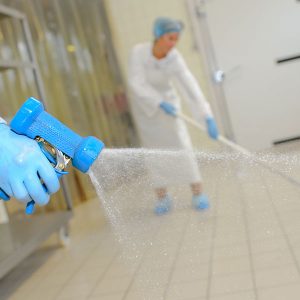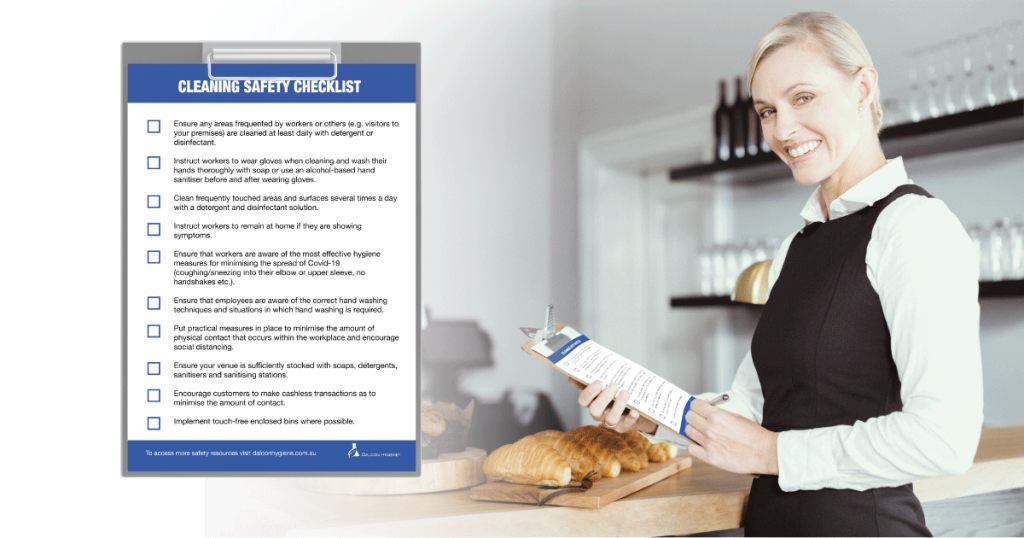
Managing COVID-19 in hospitality businesses may seem daunting, but there are a few basic steps that build on the everyday cleaning routines of these businesses that can go a long way to safeguarding a restaurant, hotel or bar from the virus.
Safe Work Australia have provided a comprehensive list of precautionary steps for managing the threat of COVID-19 in hospitality businesses that owners can take to ensure they are giving themselves the best opportunity to remain open despite the threat of community transmission of COVID-19. Australian businesses have done a remarkable job of adapting in order to keep their staff and customers safe and to ensure that the revenue keeps flowing. However, the potency of the virus and the ease of which it can be transmitted has meant that bar, restaurant and café owners have had to be and must continue to be as diligent as ever when it comes to cleaning and disinfecting their venues.
The virus is carried by vapour droplets that can then be absorbed by coming into contact with contaminated surfaces. If an individual comes into contact with these surfaces by touch and then places their hands near their nose or mouth, the virus can be absorbed. The good news is that surface-based transmission can be accounted for with regular and diligent cleaning and disinfecting. The following list provides tips and pointers for business owners to ensure that they are effectively managing COVID-19 in hospitality businesses so that their venues are sanitary, hygienic and remain open for business.
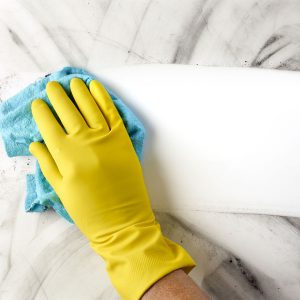
1. Cleaning and disinfecting are different things, and you must do both.
‘Cleaning’ means physically removing the dirt and grime that harbours bacterial and viral germs using a combination of hot water and detergent. ‘Disinfecting’ means using chemicals to eradicate germs that remain on surfaces post-cleaning. It is essential that surfaces are cleaned before they are disinfected, as a dirty or grimy surface can greatly reduce the potency of disinfectant chemicals. Click here to learn more about how to clean and disinfect.
2. Cleaning and disinfecting for COVID-19 need not be long and arduous tasks.
Cleaning and disinfecting for Covid-19 is a relatively simple process when compared with the usual task list assigned to employees each day. A simple wipe-down of surfaces with a solution of hot water and detergent followed by the application of a disinfectant can take less than a minute and is suitable for the eradication of the germs that result in the transmission of COVID-19. The simplicity of this process should encourage your staff to undertake this action more frequently, thus reducing the risk of community transmission within your venue.
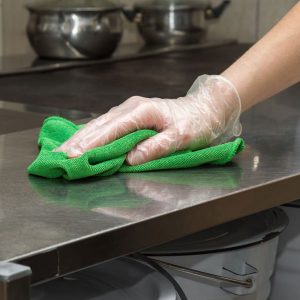
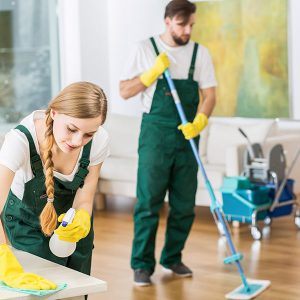
3. Comprehensive cleaning is still a once a day job.
It is not necessary to deep clean your venue multiple times a day. For general cleaning and disinfecting, focus heavily on items and surfaces that people come into regular and heavy contact with. These can range from more obvious fixtures such as tables, chairs, cutlery, glassware etc. through to more ambiguous elements of your venue such as door handles, toilet seats, pens, napkins etc.
4. Sanitisers are not suitable substitutes for disinfectants.
Sanitisers are chemical solutions that are designed to kill some of the bacterial and viral germs that can cause diseases in humans. However, as they are designed to be used on the skin, they are not as potent as a disinfectant and are therefore not appropriate for cleaning surfaces. Alternatively, disinfectants are not appropriate for human skin; and direct contact with skin or eyes, or absorption of mist or liquid through the respiratory tract should be addressed immediately according to health and safety standards. Always wear appropriate PPE when cleaning.
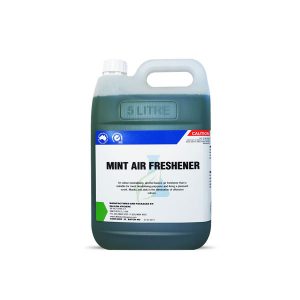
5. Antibacterial products will not kill the Coronavirus germ
The term Coronavirus is used to describe the viral germ causes the disease called COVID-19. As Coronavirus is a virus, an antibacterial product (which is designed to kill bacteria and is extremely effective against bacterial infections) will not kill the germ on its own. Always look for a high-grade detergent and disinfectant for your cleaning surfaces. Regular soap and warm water are effective for cleaning hands.
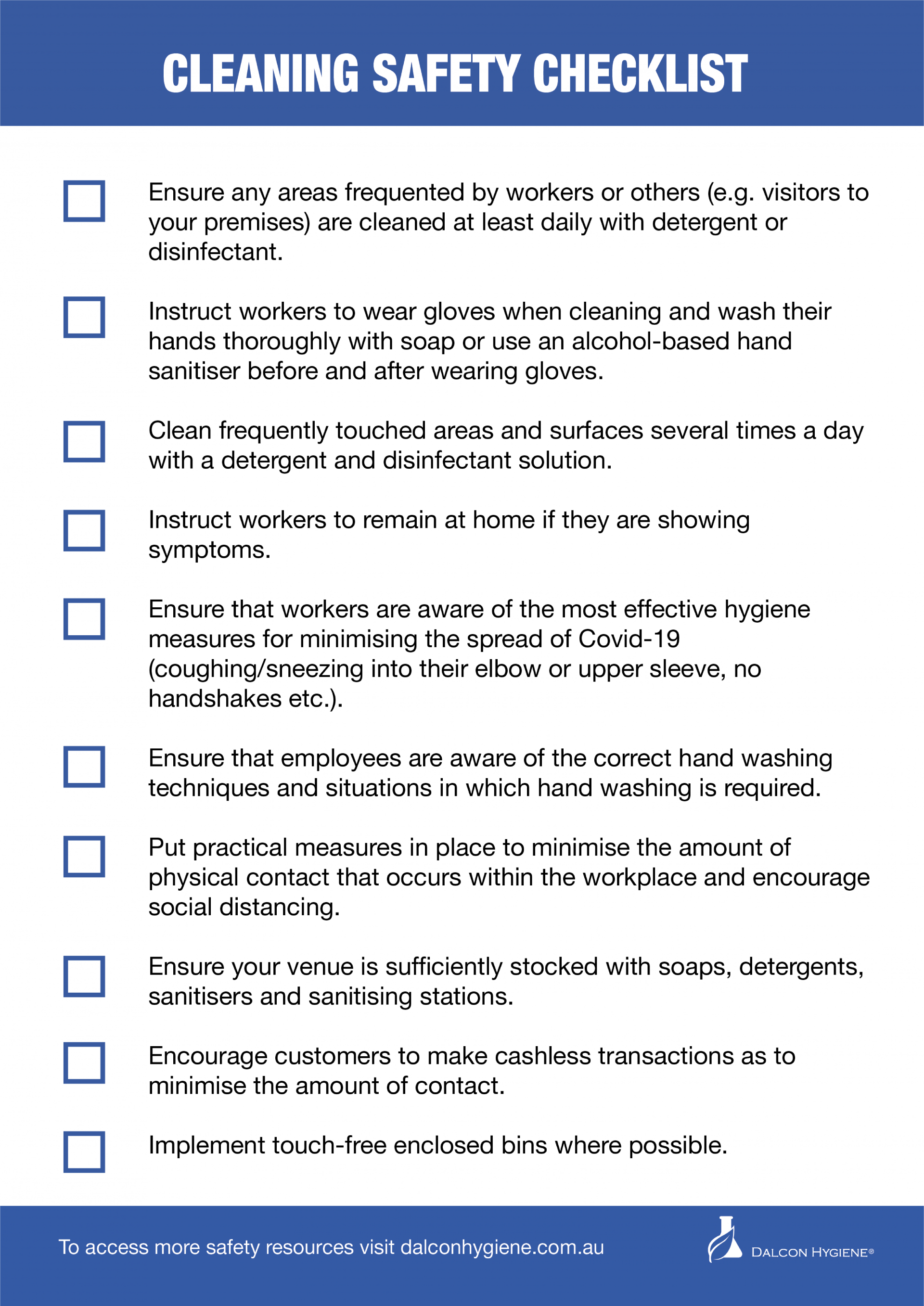
Ultimately this level of detail is essential in ensuring that the threat of COVID-19 in hospitality businesses is effectively managed so that they may remain open with minimal risk to your staff and customers. Encourage all members of your team to adhere to these guidelines by downloading this checklist and placing it in heavily populated and highly visible areas of your venue.
Fill this form to download Cleaning Safety Checklist
For more information please refer to Safe Work Australia article:
https://www.safeworkaustralia.gov.au/sites/default/files/2020-04/COVID-and-Cleaning-info-sheet.pdf
Where to find more information about Coronavirus?
The Department of Health runs the National Coronavirus Hotline – 1800 020 080. You can find more contact options for the Department of Health on their website.

